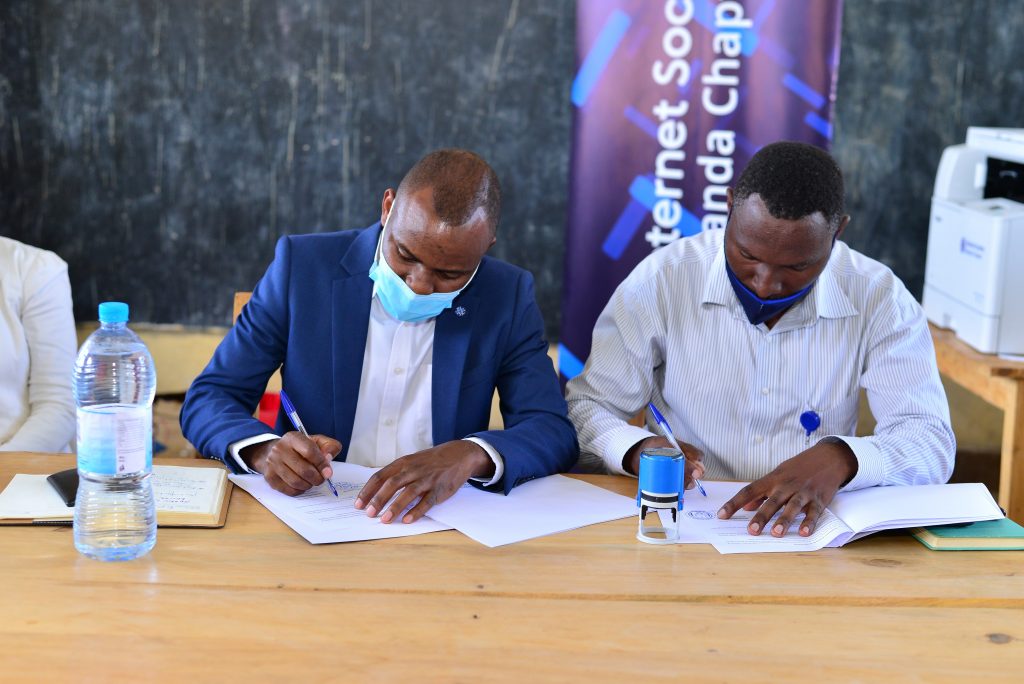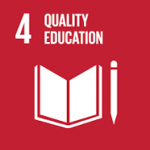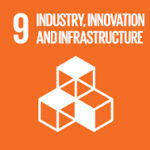SMART LAB
1. Project Summary
SMART LAB Project aims at bridging digital divide by supporting schools that have participated in Internet for Education Workshop acquiring 4 computers and Internet connectivity to help trained teachers apply gained knowledge and ensure knowledge transfer.

2. Why is this project needed?
Since December 2020, ISOC Rwanda Chapter has been conducting Internet for Education Workshop with the goal of empowering teachers of Primary Schools with digital skills that enables them to use Internet in classwork. The workshop was well received by the community, 152 teachers completed the workshop and gained knowledge on Computer basics, Microsoft Office, Email Essentials, the role of Internet in education and how it can be used to achieve quality education for all.
From the feedback collected at the end of each Internet for Education workshop and the field surveys conducted, it was identified that some participants don’t have computers and came from schools that did not have computer laboratories. This makes it hard for them to apply gained knowledge.
ISOC Rwanda Chapter has also received feedback from school head teachers confirming that their schools have no computer laboratories to assist trained teachers to apply gained knowledge. Combining feedback from teachers and their school head teachers, clearly illustrate the need for computers and Internet connectivity in schools.
To satisfy this increasing need introduced by Internet for Education Workshop, ISOC Rwanda Chapter has designed a SMART Lab Project to bridge digital divide, to help trained teachers to apply gained knowledge and ensure knowledge transfer.
EP KAYOVU was selected to be one of the schools to receive SMART LAB so that teachers who completed Internet for Education Workshop can share gained knowledge with their colleagues who have not participated in the workshop and students they teach.
EP KAYOVU is a new primary school located in GASHORA Sector, BUGESERA District of Eastern province. The school has 493 Students from low-income families and 11 teachers.
The school has no Computer Laboratory and no Internet Connectivity. The school only has 1 computer used by the head teacher of the school in administration.
This project contributes directly to the following Sustainable Development Goals (SDGs):

Our work contributes directly to Target 4.1 of SDG 4, by improving secondary school educational outcomes for boys and girls. Additionally, students are gaining relevant technical skills that will improve their job prospects, contributing to Target 4.4.

This project directly contributes to Target 5.B of SDG 5, since we select schools who have a similar ratio of girls to boys and actively promote the usage of equipment by both genders, ensuring that no individual is excluded.

By supporting schools with computer lab and assistive technology such as projectors, allowing thousands of students to access information and communications technology, we are directly contributing to Target 9.C of SDG 9.
3. What do we hope to achieve
By providing access to educational resources, communication and training teachers to support student-centric learning, the project will support ICT enabled change. The project will enhance the quality of education, improve independent study and advance the skills and life chances of students from the school community.
The benefits expected include:
⦁ Teachers will be able to digitize classwork,
⦁ Teachers will be able to teach using digital devices,
⦁ Students and teachers will be able to access digital materials and e-learning platforms,
⦁ Foster Individual research in teachers promoting better engagement, interaction and teaching impact,
⦁ The staff will be able to digitize school records and better keep track of student absence and retention.
